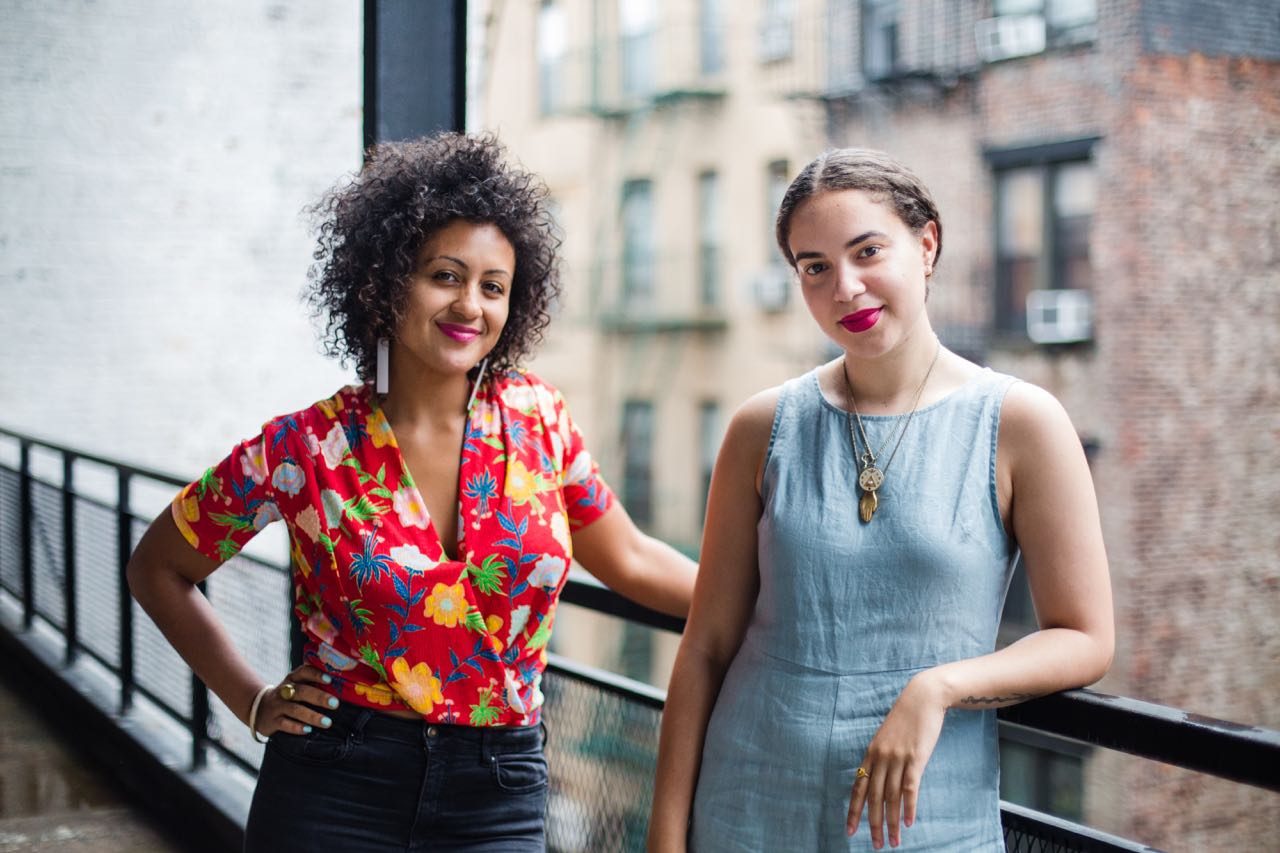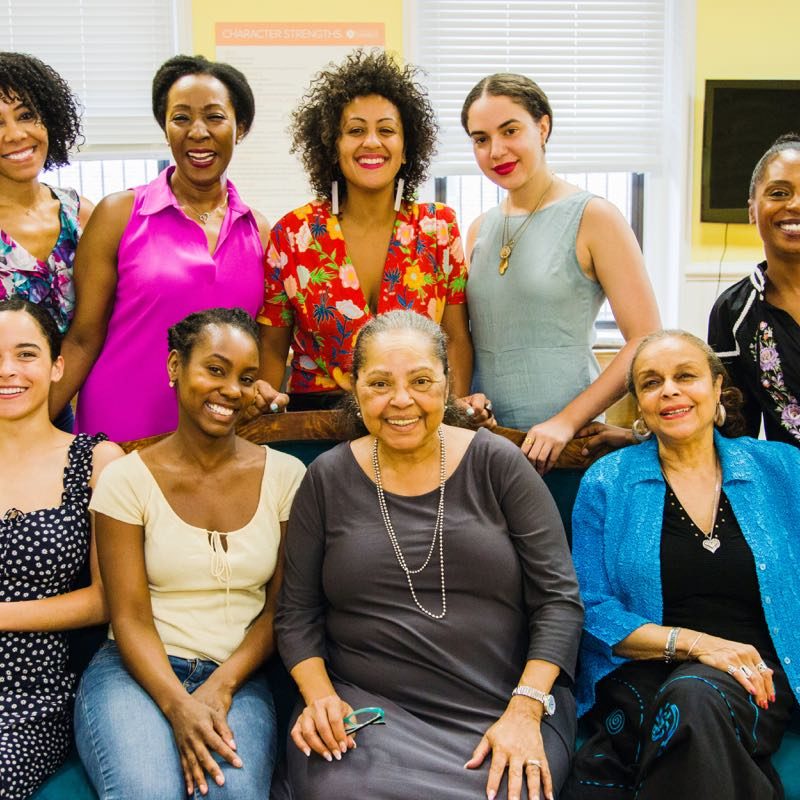A Roundtable with Lileana Blain-Cruz and the Cast of The House That Will Not Stand

July 17th, 2018
The House That Will Not Stand is the final show of New York Theatre Workshop’s 2017-2018 Season. This new twist on acclaimed Spanish poet Federico García Lorca’s The House of Bernarda Alba sets the play in the changing racial culture of New Orleans circa 1813, and provides a glimpse into a brief moment in 19th century American history, when wealthy women of color had land and power of their own. Marcus Gradley’s all female play tells the story of the widow Beartrice who is trying to hold on to her three unmarried daughters, as well as the house she owns, amidst the larger power struggle of a city in an ominous transition. I recently sat down with director Lileana Blain-Cruz, assistant director Machel Ross, actors Joniece Abbott-Pratt (Odette), Juliana Canfield (Maude Lynn), Harriett D. Foy (Makeda), Lynda Gravatt (Beartrice), Nedra McClyde (Agnes), Marie Thomas (La Veuve), and Michelle Wilson (Marie Josephine) for a conversation about their rehearsal process, what it means to be a “powerful woman,” and more.
The following conversation has been edited and condensed.
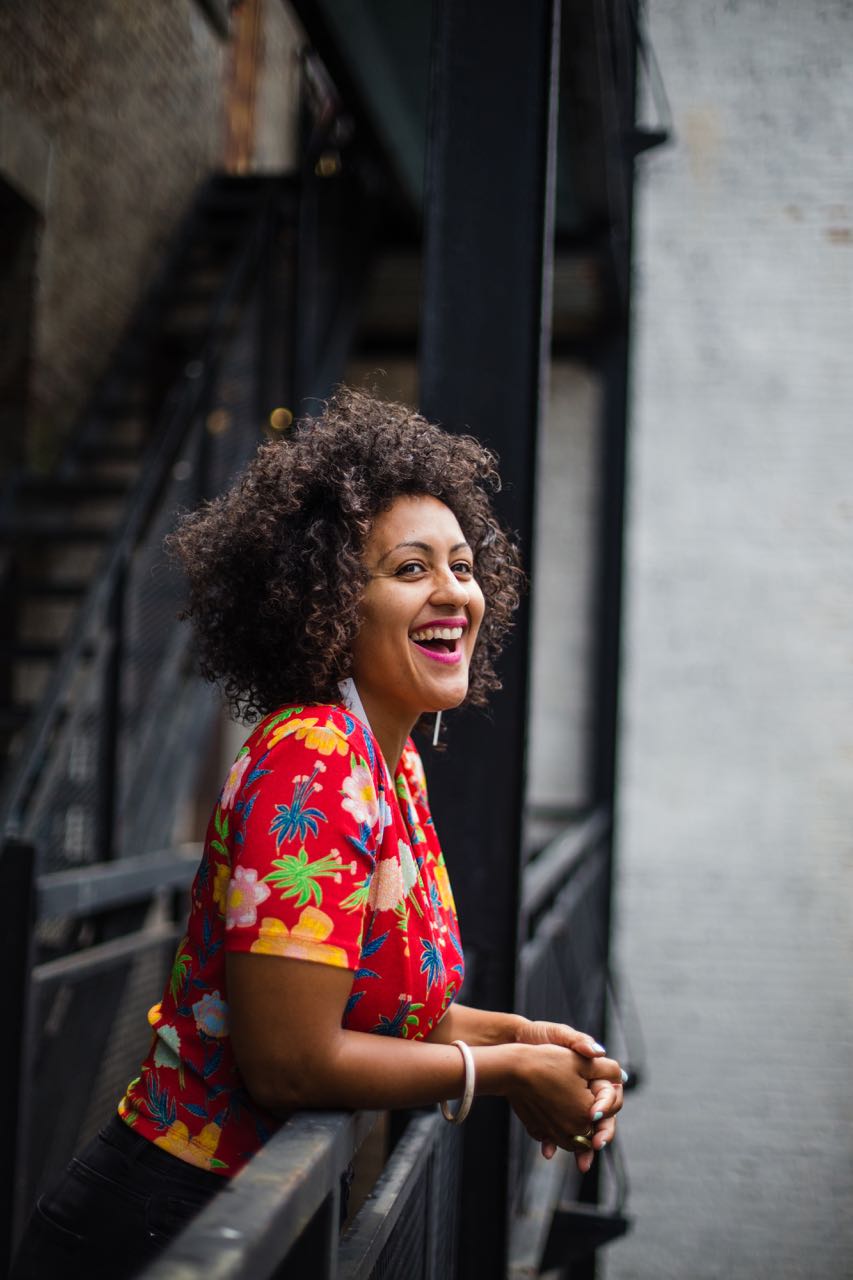
How familiar were you with The House of Bernada Alba, the original text on which this play was based?
Lileana: I read it a long time ago, in college. I read it in Spanish, so I was missing all kinds of stuff. The thing that does stay with you throughout the years is this mother who’s oppressively holding onto her daughters, and one daughter in particular who’s seeking to escape. Thinking about how Catholicism lived inside of that, and how Lorca was living inside that society at that particular moment in time, those are themes that resonated for me. But it’s been a while since I looked at the Lorca.
Harriett: It’s so funny, you just reminded me that I did a workshop down in Florida, and I think I actually played the servant. It was a little adaptation, very broad, and intense, and we worked really hard.
Machel: I directed The House of Bernada Alba for my senior thesis [at NYU]. So it feels very full circle to be working on this production. I have a very, very big spot in my heart for Lorca. Thinking about the political context in which he wrote this play and the political context in which we are making this play feels very special and connected.
Michelle: Fascism is real. Authoritarianism is real. Patriarchy is real. It’s interesting how the matriarch is oppressive, but in trying to protect.
Marie: I’ve heard about this play [The House That Will Not Stand] over and over again because I’ve had friends participate in it. One person, in particular, kept saying, “You should be in this, you should be in this.” So I’m in it. I’m very happy to be here and to experience it. I’ve read things about this era, in my lifetime, in Louisiana. I find it a challenge in some ways, to take myself to this particular era. I always play nice people. She’s not necessarily nice, but she doesn’t know that. Most people who are not nice think they’re nice.
Lynda: I did The House of Bernarda Alba in Phoenix Arizona, before you all were born. I was so engrossed [in my role of Bernarda] that one day, my mother said to me, “You don’t run me. You need to leave that in the theatre. We’re not doing that.” And I had to come back to myself.
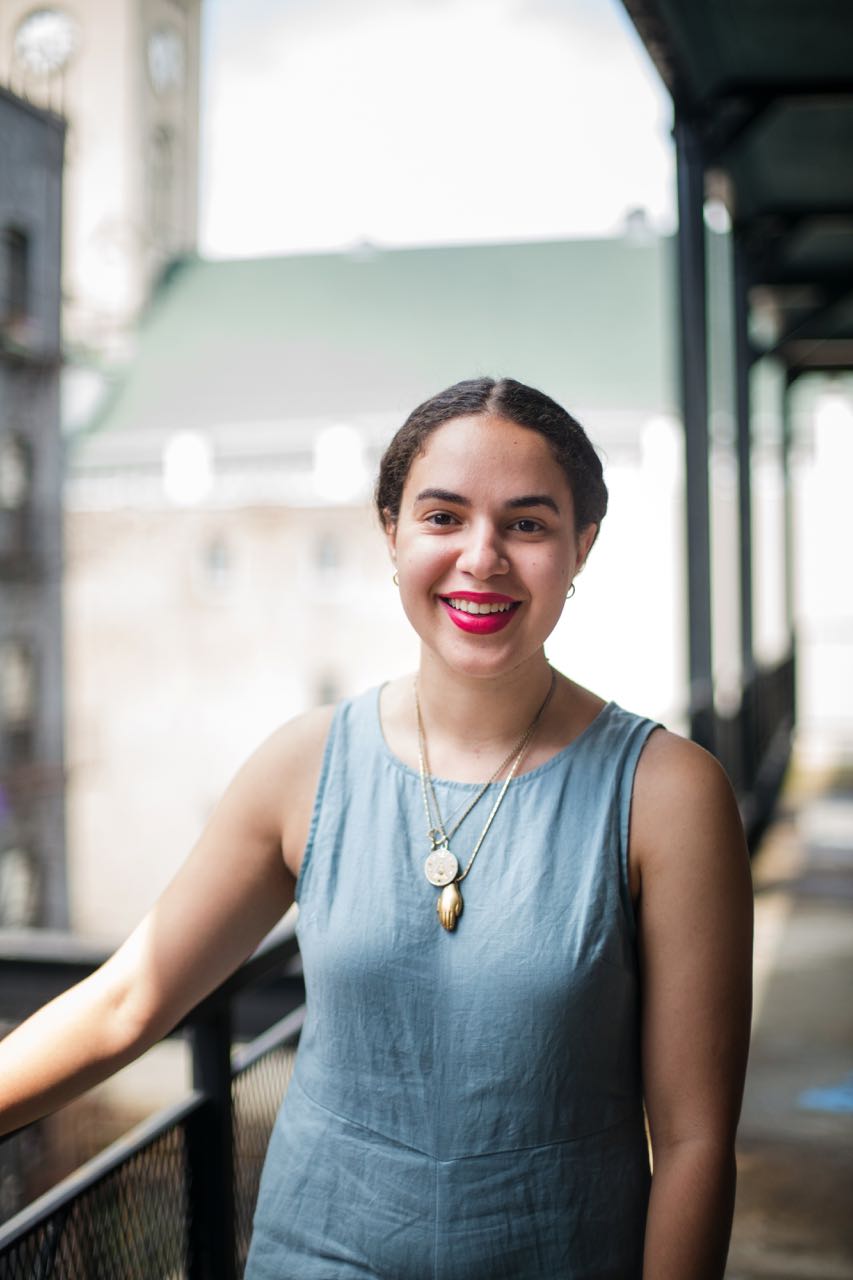
What is it like for you to now play Beartrice [the Bernarda character] in this new adaptation of the play?
Lynda: It’s different in that it’s a celebration of these women in New Orleans, in 1813, and the crisis that they were met with when Louisiana was sold to the United States. A way of life stopped for them. For me, any play that celebrates the condition of women of color in this country is always a joy.
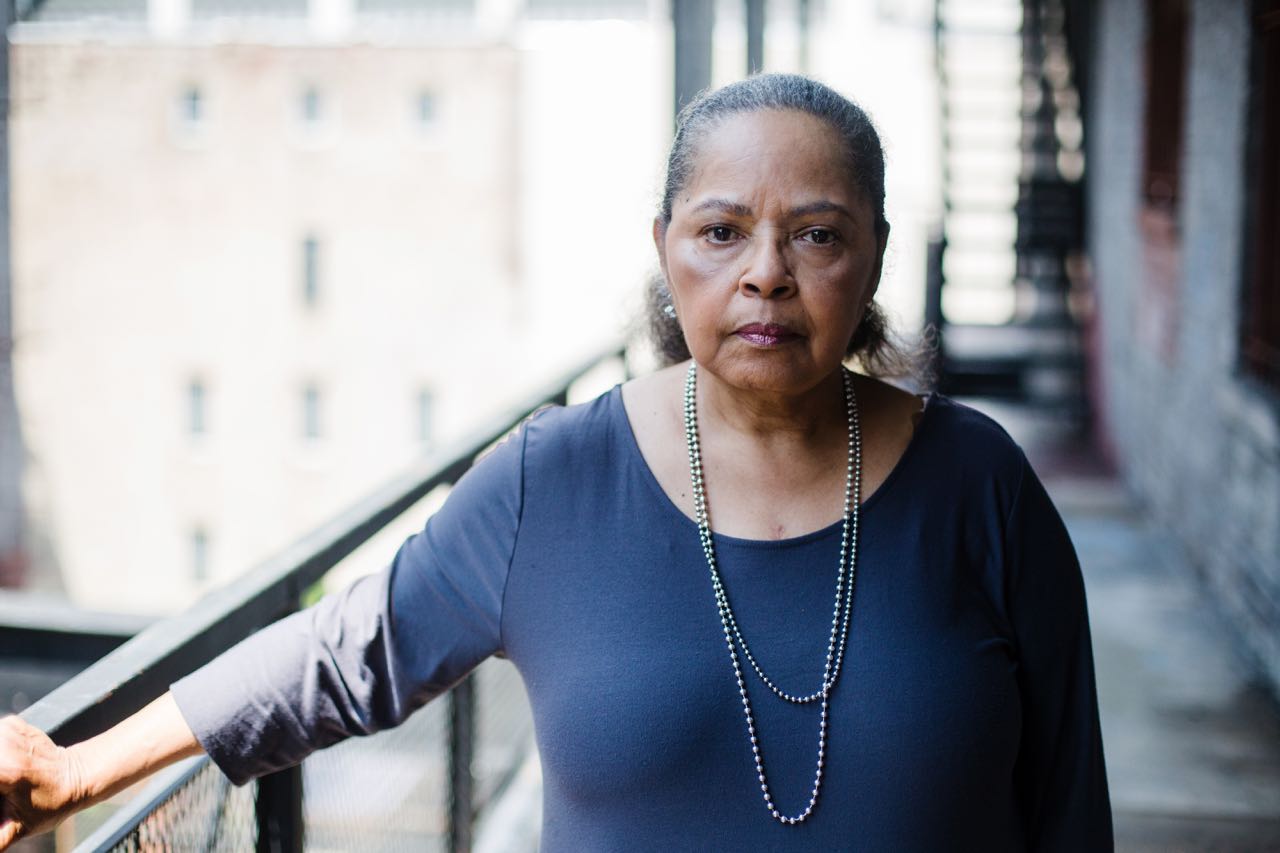
What was the significance of changing the setting to early 19th century Louisiana?
Lileana: I think it’s a moment at the brink of change. The Louisiana Purchase has just happened. The fact that it was no longer going to be under French control impacted the society, in [terms of] who could own property, how things were passed down. It’s something that we talk a lot about in relationship to Beartrice. You had a system of law that allowed people of color to own property in a particular kind of way, and to pass down that property. That created a class of people that could sustain itself. Then you have a different culture coming in, people who are not interested in providing people of color with the same kinds of rights. You are watching a family having to contend with that shift. To Machel and Michelle’s points, fascism and a different kind of political rule coming into play and rights being taken away feel particularly vibrant and scary. If you see Beartrice as trying to build a fort against forces that she knows are going to try to rip her family apart, it reverberates in today’s political climate.
Michelle: These are women at top of their caste system. Now, the Puritans are coming in, and they’re going to strip them down. It feels very much like what we’re going through. It’s a reordering of the caste system, in a way.
Lileana: That’s one of the things that I love about this play. In our American history, we’re not really taught about this class of free people of color who have money, who have houses. I think Marcus’s choice to place it in Louisiana in 1813, and to show wealthy women of color, is really significant.
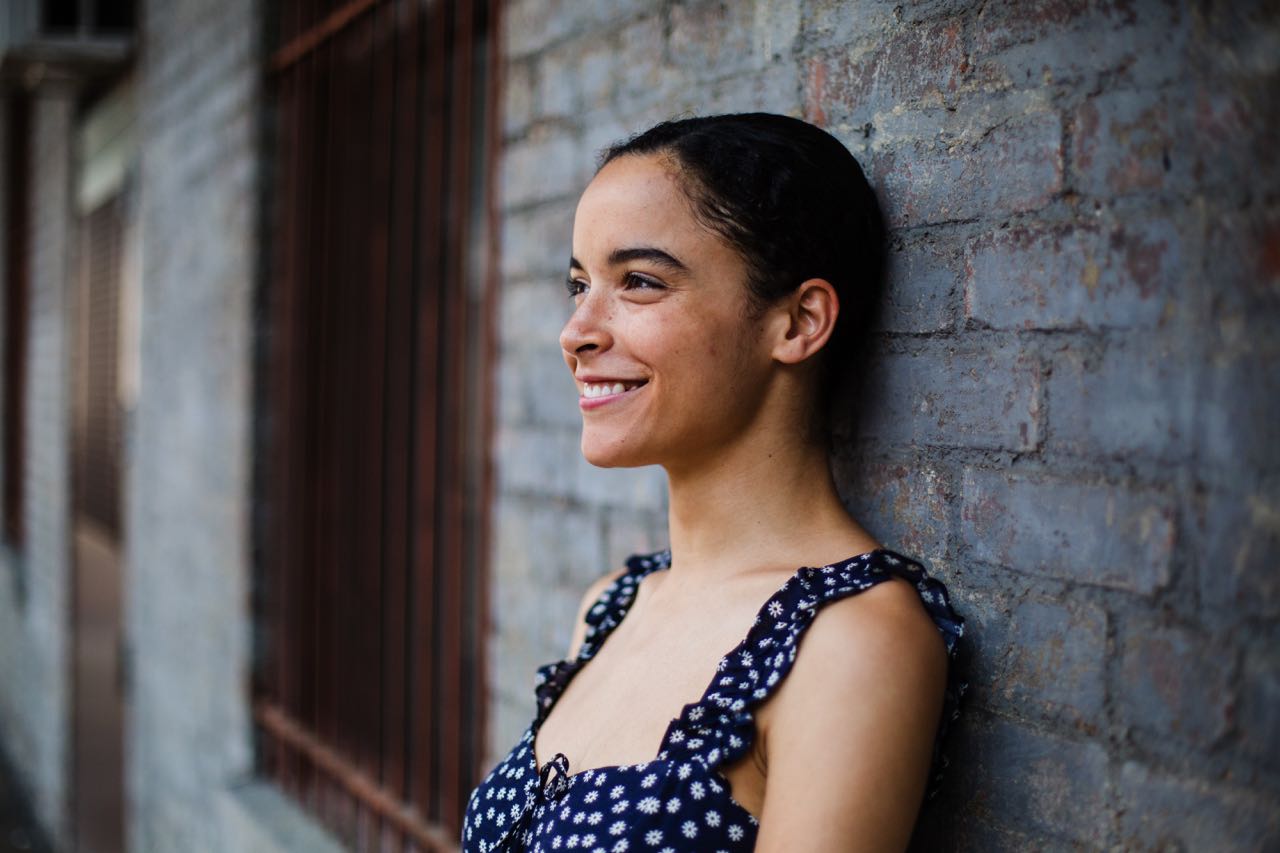
Is this the first time that you’ve been in a rehearsal where the entire cast is comprised of women of color?
Machel: Yes.
Harriett: Yes.
Nedra: Yes.
Joniece: Not for me. I worked on Eclipsed.
Michelle: I did For Colored Girls at Steppenwolf.
Lileana: For Colored Girls was my college thesis [at Princeton].
Nedra: I’m still finding out the joy of being in a room like this, but every day I feel an openness that I’ve actually never felt in a rehearsal room before. There’s always been a certain amount of restriction that I didn’t recognize until now. But being able to dance together during breaks, being able to have conversation that’s rooted in similarity and common ground about this work, has opened me in ways that I wasn’t aware I was able to as an artist. I’m often in spaces where I may be the only person of color, especially in theatre, and so I didn’t realize what I hadn’t experienced.
Harriett: It becomes a sisterhood. A sisterhood of women of color, who can come to together and love and support each other. We don’t often get that in a room. Because like Nedra, I’m often that person of color in the play, so you have to hold it down, you have to hold people accountable. Here, we can be free. It’s a safe space. We can talk about anything that moves us. Our grandparents, our grandmothers, anything that has to do with being powerful women of color.
Michelle: My last four projects have been with women, and people of color. So I’m just going to keep riding that. They’re doing the work that needs to be done. It feels like there’s an urgency to the work.
Juliana: As the resident baby of the group—I just graduated from [Yale drama] school last May—I spent a lot of time doing plays with people who were a year older or younger than me, which has its own joys, but it’s been such a pleasure to be able to see people at different points along the path of a lifelong career as an artist. And as Nedra said, it’s wonderful to feel like we have some sort of a common experience, but also to see the diversity of experience, and the many ways that we as women, and women of color, can make careers as actors and artists and theatre makers. That’s extremely inspiring, to see many examples of what one can become, and to be very pleased and excited about all of those possibilities.
Marie: I think it’s wonderful. I think it is just great. I’ve been around for a few years, and it’s wonderful to see young talent. They’re beautifully trained, and they have all kind of lovely experiences.

It’s great to see women of different ages coming together in a rehearsal room. Do you feel like you’re forming a theatrical family of sorts here?
Lynda: There’re some of us who are around the same age; we have a grandma, auntie, great aunt. I would say that I’m probably the grandmother. I have watched a couple of these ladies in the beginnings and middles of their journeys as actors, and it’s been very exciting to watch their work grow. Having watched these young women’s careers develop, what’s comforting is that they have maintained a root that I don’t think they will ever lose. I could leave the business and go on to glory knowing that’s in good hands. So, it’s wonderful to see that, whenever you get in a room like this. I have been telling Marie about this play for at least six years; I knew from the very outset that she was the person who needed to play this character, because I know her so well. She told me about a play [Don’t Bother Me I Can’t Cope by Micki Grant] that she was in the original company of a couple days ago, and I went home and nearly passed out.
Marie: It was quite an event. That’s when Clive Barnes was the critic of The New York Times. He raised us up, because we were way over there [Off-Broadway], and we moved into the Edison, which really is a tiny theatre, but it was considered Broadway. I think I stayed there for nine months, and from there I went to daytime television [playing Lauri James on The Doctors] for three and a half years. It was just wonderful. I actually went from Lincoln Center, to Broadway, to daytime television. Then, after that, things just changed for a little bit. I had to look life in its eye, [and ask myself] “Is this where I need to be?” I mean, the reality of our business at that point wasn’t much to be proud of. I had an opportunity to meet the wonderful Lorraine Hansberry. She said, very candidly, that we needed more playwrights of color because we’re not going to get into [other] plays. They see us a certain way, and there’s no seeing beyond that. They don’t see the various types of characters we can play. So I am grateful to be here, and to be with this young, wonderful director. It’s fabulous.
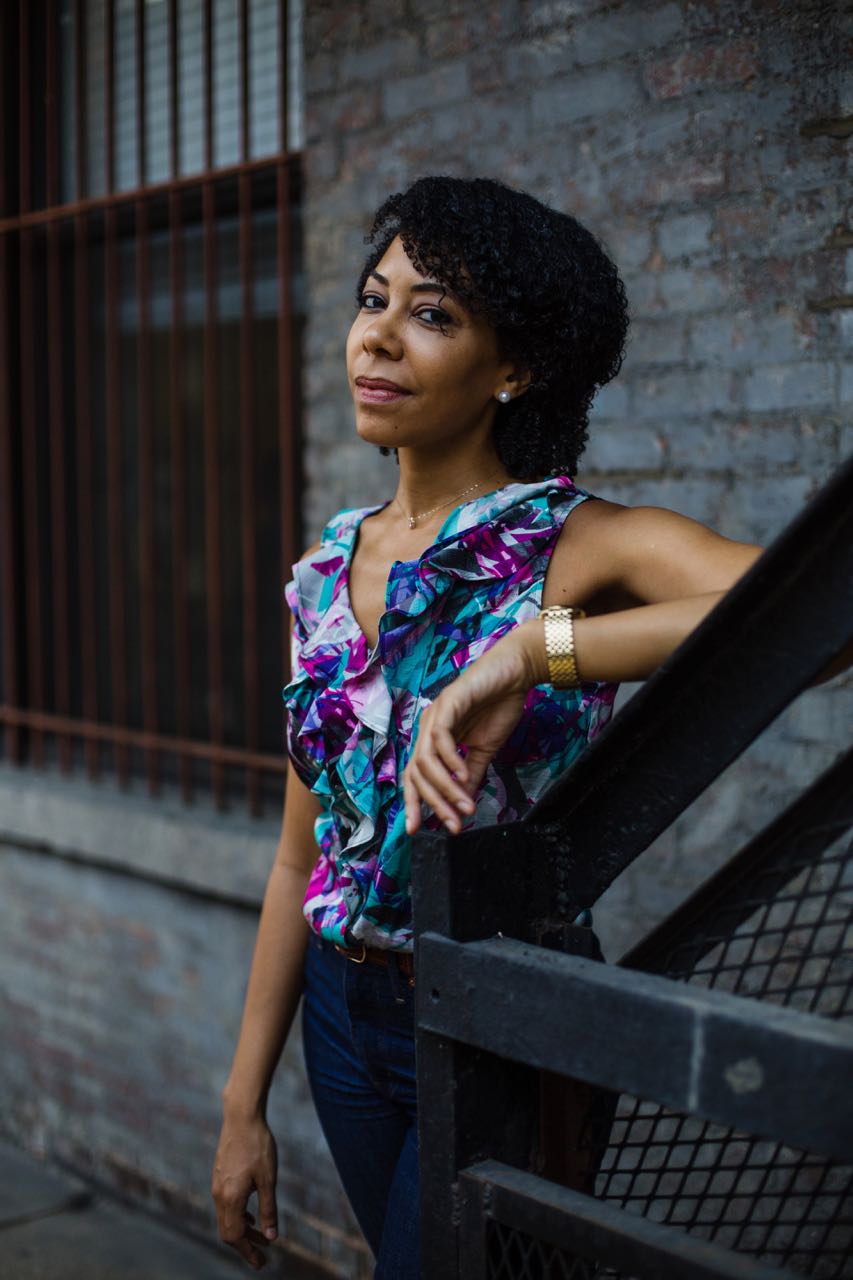
Lileana, in a previous interview with The Interval, you spoke about how young female directors sometimes need to be very aware of how they comport themselves in certain rooms, especially when giving feedback to older male actors. Do you feel like you can be a different version of yourself in this room?
Lileana: You’re talking about the part where that I said this old man yelled at me, and I was like, “Excuse me, you’re going to have to take it back.” Literally, this man had been like, “No, that’s wrong,” screaming at the top of his lungs in the room. It was basically the second big show I had done at that point in my career. Yes, it’s totally different in this room. I think it [speaks] to what everybody has spoken to, which is that we are making something that’s larger than ourselves. It’s always been connected to something larger than ourselves, so ego doesn’t come and play in the same way. If there are questions, or if there’s a way of trying to get at something, it’s because we want honor and to do service to the people that we’re playing, the world that we’re creating. It’s coming out of a place of rigor and care and tenderness, and care for our fellow ensemble members. The spirit of this work, the stories of the women whose lives have never been told before, creates a generosity and openness in this amazing ensemble that consistently moves me. I’m grateful when I get to be in a room like this because, for me, that’s what theatre is about. It’s been said, over and over again, that [this is a] space that resembles a church. The theatre is where a group of people come together, and listen, and breathe, and hear things together. It’s a joy to come into this room every day.
Joniece: You have to come into the process and focus on serving the play. It’s such an ensemble piece. Everybody is so connected that there really aren’t scenes. People have a moment over here for a while, and then it flips over here, and just goes back and forth. So, you’re always listening; you’re always connecting. I don’t have scenes with certain people, but I have moments with them, you know what I mean?

How do the rest of you approach the rehearsal process? Michelle, you’ve previously told The Interval that your way of approaching text and character is through writing. Are you keeping a journal as you learn this play as well?
Michelle: Yes. I’ve been writing Marcus’ text a lot, to live inside that, because it’s just so dense and poetic. What’s really interesting about his world is that I don’t have to have a lot of inner monologue. I can live in his words, and they carry it through, and that’s really a relief. But I also want to say that this is really about the politics, having seven women of color on the stage, in this day and time. Marcus has given us these beautiful tools. You can tell he loves women; he adores our struggle, and he honors the foremothers who have brought him through. In a theatre, this is an act of politic.
Joniece: A part of that is recognizing our power. These are all very strong women, and that in itself is a political act. It’s like, “How do you have these strong, black, powerful women standing in their truth on stage?” It’s exciting.
Michelle: And I would also add complex. Every single woman is so special and unique, and that adds a very powerful dynamic to the show as well.
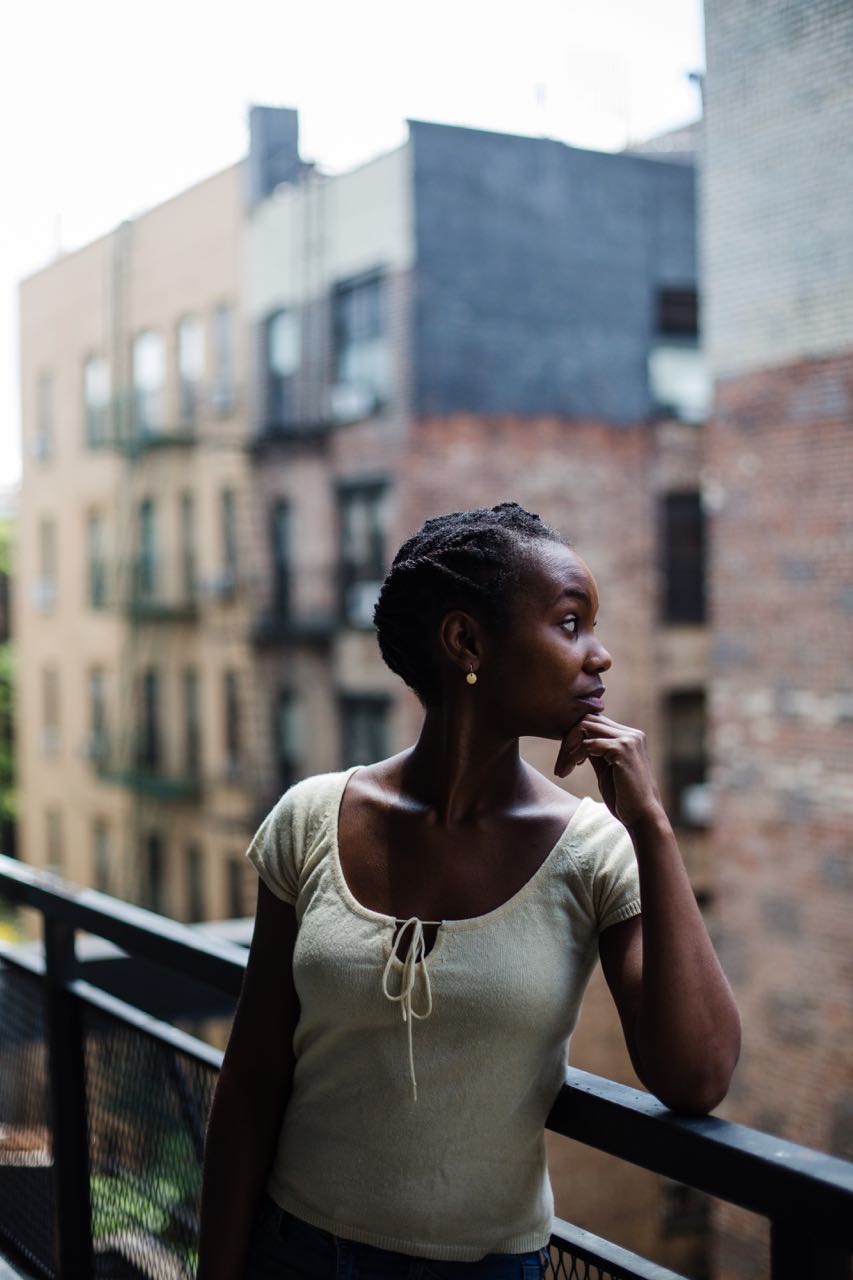
Could you speak a bit about these complex, powerful women that you’re playing?
Juliana: I don’t think that when people see this play they’ll say, “Wow, Maude Lynn, what a powerful woman she is.” I think her journey in the play is towards realizing her own power. There’s a sense, with the sisters especially, that we begin as girls. Our journey is going towards complexity, which maybe is a type of power. I think these three sisters, much like the three sisters in Chekhov’s play, are like hot house flowers. They’re not allowed out of the house. They’re not exposed to the world. They’re extremely educated, but they don’t really get a chance, before this play, to stand on their own two feet and make decisions for themselves. I think, for our three characters, this day marks the first time that we have been able to make decisions for ourselves and face the consequences. So, I think it’s not stereotypical power. It’s also a seeking for power, and how it manifests differently in different personalities in young women.
Nedra: To piggyback off of that, I feel like that we use the phrase “powerful woman” so much these days. I ask myself, “What does that mean? Who are the powerful women in my life? I’ve never felt like a powerful woman.” I had to redefine what that was for me. What is solidifying for me, through my character in this play, is that what looks like power is being brave in the face of fear. She allows herself to feel the fear, but then stands up to it anyway. And so, “powerful” for me is two-fold. It’s allowing ourselves to be vulnerable, while still being able to move in the face of whatever is there. I think that each of us finds our own way there, to bravery. I think [my character] Agnes is helping me, on a personal level, to find a little bit of that as well.
Marie: There are two kinds of people in life. The people who are afraid and don’t do anything, and the people who are afraid and do something. I think that therein lies what we all are. I mean, you’re brave enough to go after it, or you’re naive enough to go after it. And if you’re brave and naïve, maybe you can mix those up and have the courage to keep going on, and then there’s no missing the boat. You have to keep that focus and that vision. We [as actors] are the people who are telling people what’s going on. Without us, it would be total chaos, as far as I’m concerned. We hold the mirror up to nature, which is what Shakespeare said. It’s entertainment, yes, but you can do it in a way where you still get your points across.
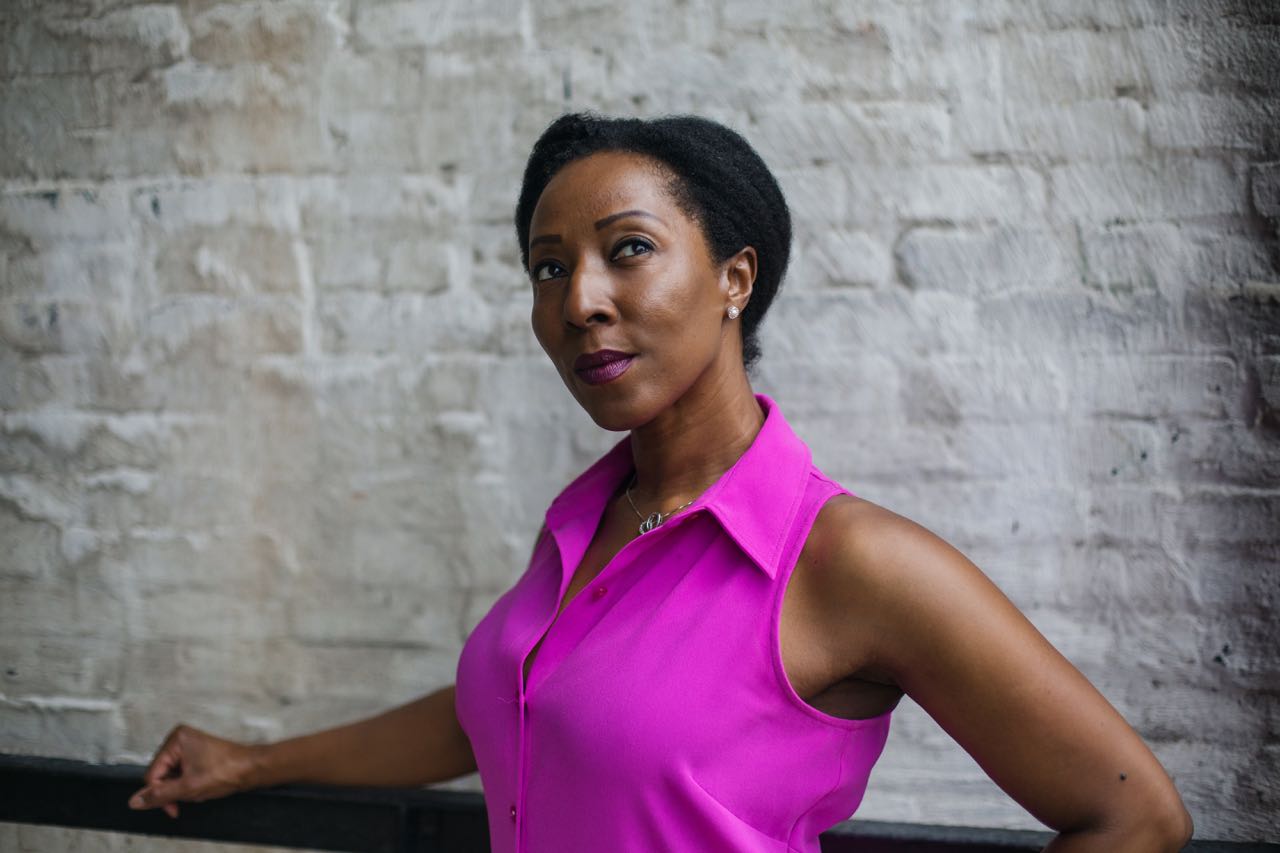
What have you learned thus far from the experience of working together on The House That Will Not Stand?
Lileana: Community is really important.
Michelle: It is everything.
Lileana: When you have a community, you have a group of people trying to build something together, and taking care of each other. That’s so important for the play making process, but also [for] life processes. We have to be there for each other. We have to give to each other, and if we do, then we’re all the better for it. Have you guys heard that story about how Hell is everybody having a long spoon and trying to feed themselves, and Heaven is everybody having a long spoon and feeding each other? I’m constantly moved by that. I’m going to take that, and I’m going to try to keep working with these ladies all the time.
Lynda: A chain is only as strong as its strongest link, and I would say that Lileana is a very strong link. She takes very good care of her actors. That doesn’t happen all the time. We are more than honored to be able to be in a room with her. We’ve all been in rooms where we’re not cared for, where we don’t feel safe, where we don’t trust what’s being told to us, because somewhere, at the core, you know there’s something wrong. And then you have to figure out how to negotiate when you’re with one of those people.
Michelle: It feels like it’s so there’s so much calculated cruelty right now. So, to be in a room of love and vulnerability, it’s really kind of radical.
Marie: It’s our age now. It’s time to rise up, because enough. Men have made a mess. Enough.
